Apple's full embrace of USB-C has led to numerous user complaints, many of which are legitimate. However, there's one common refrain that keeps cropping up: A conspiracy theory claiming Apple switched to USB-C in order to make gobs of cash from selling users new adapters, dongles and cables. There's just one problem with that narrative — it's complete nonsense. Here's why.
tl;dr: Think Apple's USB-C cables and adapters are a user-hostile profit scheme? Buy cheaper alternatives on Amazon and shut up.
There are plenty of reasons to gripe about Apple switching to USB-C, just as there are justifiable reasons to be upset about the headphone jack being eliminated from the iPhone 7.
The existing full-size USB port has been around for many years, meaning virtually any user is going to run into problems connecting any of their accessories (including an out-of-the-box iPhone) to their Mac. The switch to USB-C is, at the very least, a minor inconvenience for the vast majority of users.
And so the fact that people are upset about the new MacBook Pro going all USB-C is not surprising. But why people are upset is another matter entirely.
Apple did not create USB-C
The USB-C connector was created by the USB Implementers Forum, a nonprofit organization that has overseen the Universal Serial Bus since 1995.
While Apple is a member of the USB-IF, it isn't even a part of the organization's top-level brass. Instead, the USB-IF Board of Directors is comprised of personnel from companies like HP, Intel, Microsoft, and chipmaker STMicroelectronics.
USB-C is an open standard, meaning any electronics maker can use it. Within a few years, virtually every new computer sold will feature USB-C, whether exclusively or in tandem with full-size USB-A ports.
Apple has played a major role in establishing new connectors for computers in the past. It partnered with Intel to help create Thunderbolt, and previously the company spearheaded the creation of FireWire, and both of them are open standards.
Within a few years, virtually every new computer sold will feature USB-C.
There is some speculation that Apple again played a significant part in the development of USB-C. It's been suggested that Apple has not been vocal about its part in the creation of USB-C because the company wants the port to be embraced across the computer industry, and the suggestion that it's an "Apple port" might inhibit adoption.
Regardless of how accurate those characterizations may be, USB-C was approved by an independent, nonprofit governing board that has no vested interest in the success of Apple's Mac lineup.
The reasons for Apple — or any computer maker — Â to push USB-C so strongly are clear. It's a thin and reversible port that can handle power, data and video on a single cable.
Once USB-C adoption is near universal, the painful switch from USB-A will be quickly forgotten. Until that happens, however, some early adopters may find themselves in dongle hell. Here again, user complaints are largely misguided.
Apple does not profit from USB-C
What's the profit margin gonna be on all the Thunderbolt/USB-C dongles Apple puts out for the new MacBook Pro?
— Samit Sarkar (@SamitSarkar) October 27, 2016
Yes, Apple sells a handful of USB-C cables and adapters. Yes, they are generally more expensive than some of the other options available.
Apple's own cables and accessories have always been more expensive than the competition. And so have its products.
But because USB-C is an open standard, there are a plethora of inexpensive USB-C cable, dongle and hub options available. A quick search on Amazon shows plenty of well-reviewed off-brand cables for under $10, and known name-brand cables for around $15.
If Apple truly sought to "lock in" users to its own manufactured or licensed cables and ports, it would have designed an entirely new port to compete with USB-C.
If Apple's new MacBook Pros came with an array of Lightning ports rather than USB-C, suggestions that Apple is only interested in milking more money out of their users would carry some weight. But we don't live in that alternate universe.
Still, seeing a potential public relations nightmare as the angry Twitter mob sharpened their pitchforks, Apple slashed prices on USB-C and Thunderbolt 3 accessories this fall. The temporary discounts will last through the end of March 2017.
The outrage over the fact that Apple would make money off of its products and accessories is a strange one (Apple is a publicly traded company whose main purpose is to sell products and make money). And with a relatively tiny portion of the overall PC market, it's not like computer users have a lack of alternatives to the Mac.
Regardless, perhaps the best evidence that the switch to USB-C is not about Apple selling cables or adapters comes from the 12-inch MacBook power brick — Â a truly proprietary USB-C accessory that customers must buy through Apple (at least if they want to ensure their MacBook does not burst into flames with a cheap knockoff).
The 29-watt USB-C power adapter that ships with the 12-inch MacBook can be purchased separately for $49. And if you prefer to use Apple's USB-C charge cable, it costs $19, bringing the total cost of replacement to $68.
In contrast, the 45-watt MagSafe 2 Power Adapter for the MacBook Air — the computer the 12-inch MacBook has superseded — Â cost $79, or $11 more. And since the MagSafe cable is permanently attached to the power brick, if the cable frays (which it frequently does), you'll need to pony up the full $79 to replace it.
Since the USB-C brick for all new MacBooks features a removable, replaceable cable, any fraying would require a more affordable $19 replacement. And that cost would be even less if you used a third-party USB-C cable.
It turns out that switching to USB-C made the power brick on your MacBook easier and — most notably in the case of the 12-inch MacBook — Â more affordable to replace.
Apple does not ship the iPhone with a USB-C cable
This is another valid complaint with a complicated answer. If you want to connect your iPhone to a new Mac, you either need a USB-C to USB-A adapter, or an Apple Lightning to USB-C cable, both of which are sold separately.
While only Apple can officially say why the company does not ship the new iPhone 7 with a USB-C to Lightning cable, the numbers speak for themselves.
Apple's best quarter ever for the Mac was the September 2015 frame, when the company sold 5.7 million computers. In contrast, projections call for the iPhone to sell nearly fourteen times that — Â reaching nearly 80 million units — Â in the current holiday quarter.
Simply put, the number of people buying iPhones vastly outnumbers the number of customers who purchase new Macs.
Switching to USB-C on the Mac, while admittedly painful for many users, is a simpler change to make, because Apple sells far fewer Macs than it does iPhones.
If Apple were to switch the default cable and wall adapter in the iPhone box to a Lightning to USB-C cable, users would be outraged, because they wouldn't be able to use the cable with their existing computers, wall adapters, car adapters and other accessories that rely on the full-size USB port. The outcry from such a change would be far louder than current complaints about USB-C on the latest MacBooks.
It's for similar reasons that Apple can't switch from Lightning to USB-C on the iPhone or iPad themselves — an entire ecosystem has been built up around iOS devices, of which Apple will sell nearly 100 million this quarter. Lightning may very well prove to be the last input port on Apple's iOS devices, before it is replaced by wireless connectivity and contact charging and accessories, like the Smart Connector on the iPad Pro.
Consider that the last time Apple switched ports on the iPhone, from 30-pin to Lightning, user outrage lasted for years. Though that transition took place with the debut of the iPhone 5 in 2012, Apple Chief Executive Tim Cook was reminded of how annoyed users were by the switch by comedian Stephen Colbert, in an appearance on The Late Show three years later, in 2015.
"It's the same charger, right?" Colbert asked Cook about the then-flagship iPhone 6s. "Because I will stab you in the neck with a fondue fork right now."
 Neil Hughes
Neil Hughes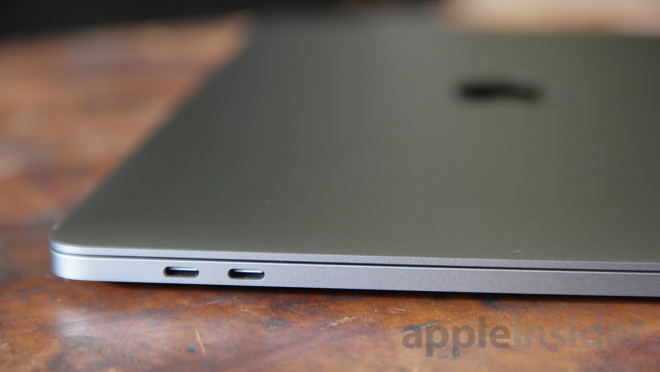
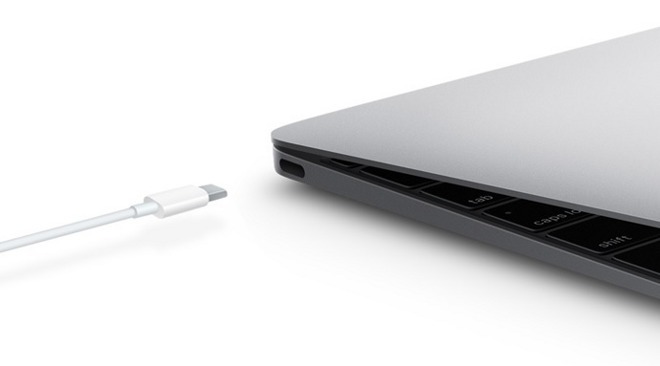
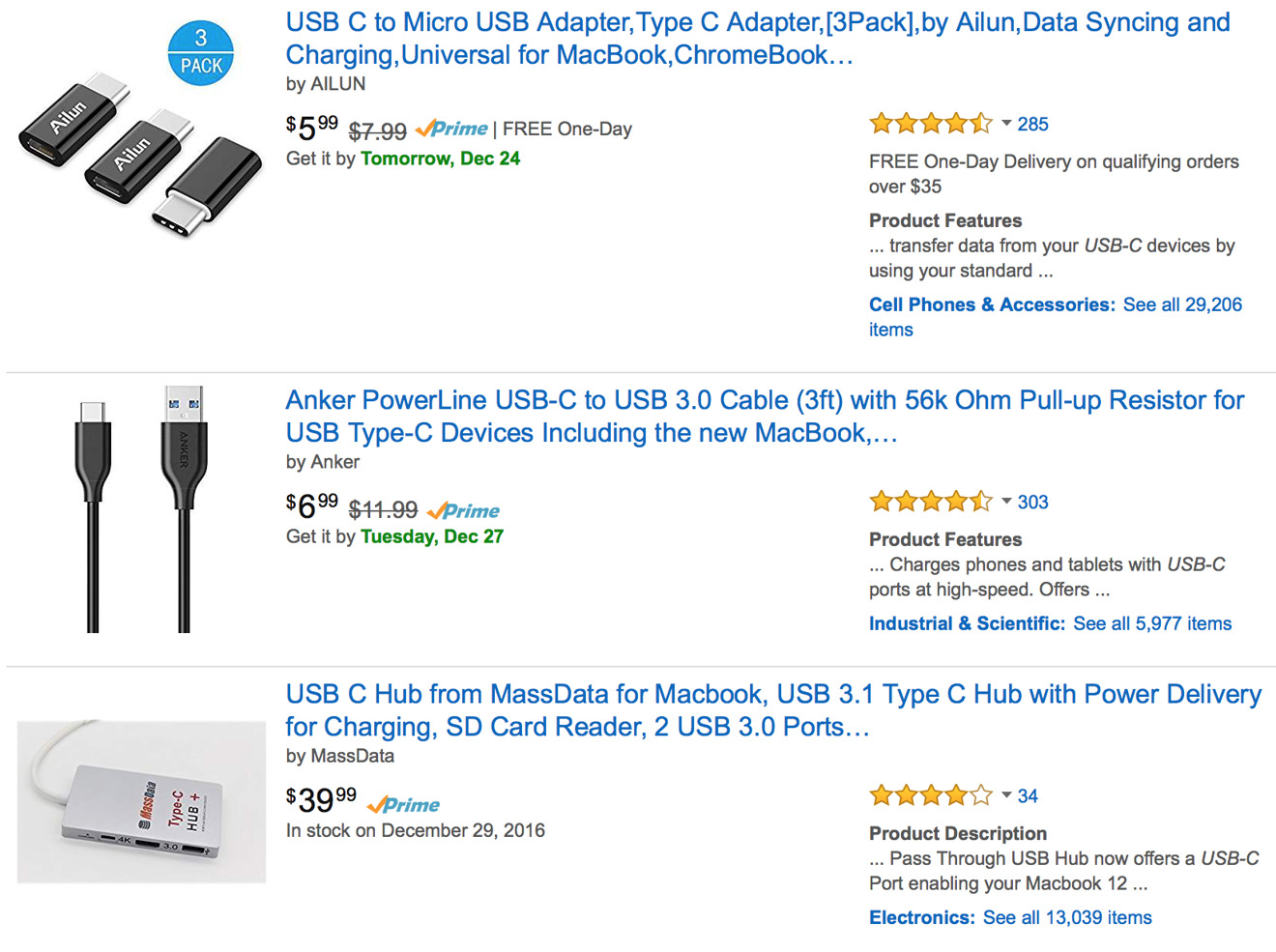
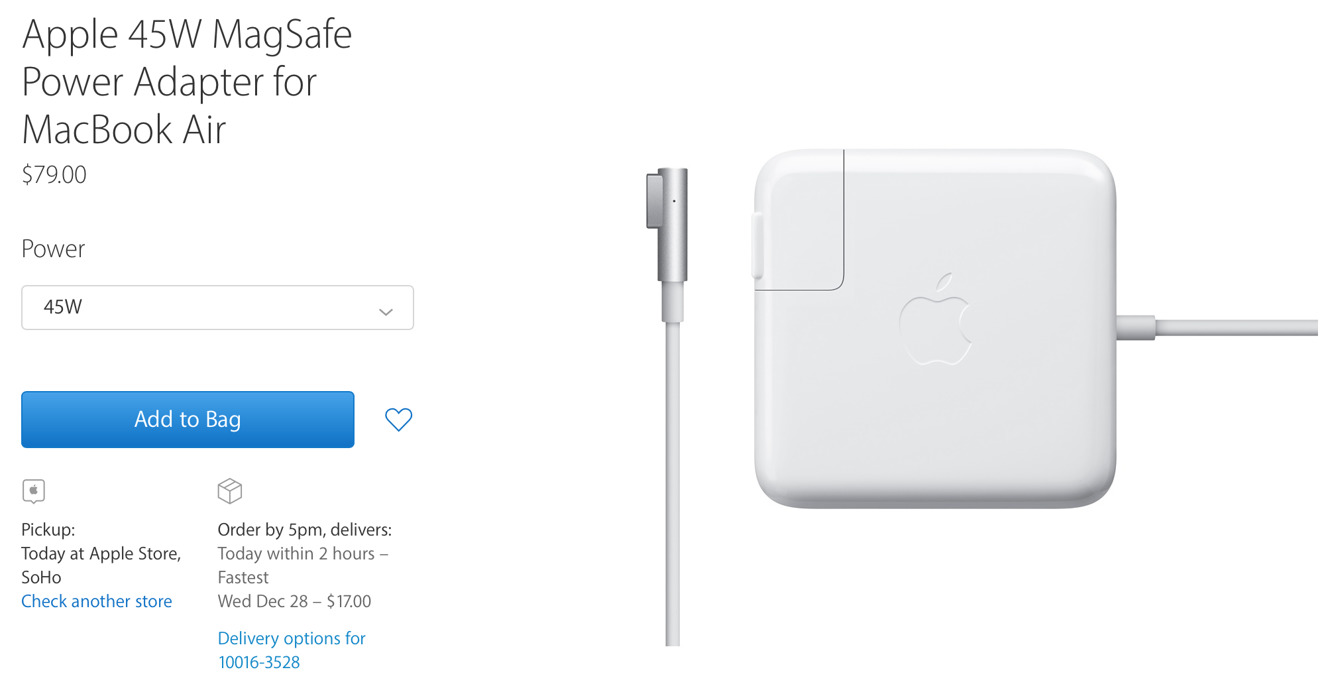
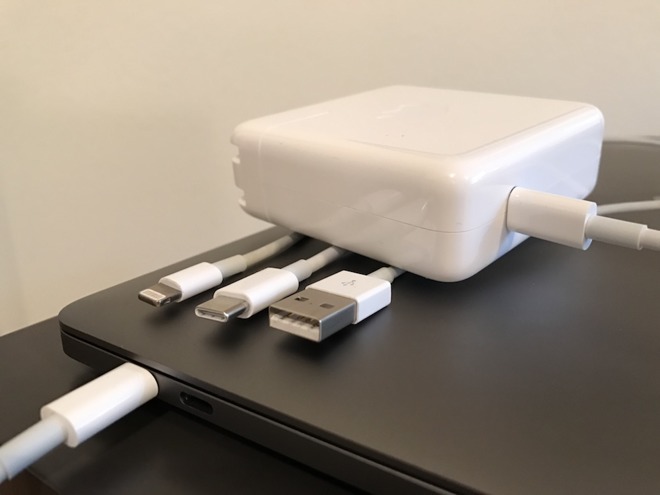







-m.jpg)






 Andrew Orr
Andrew Orr
 Amber Neely
Amber Neely
 Marko Zivkovic
Marko Zivkovic
 William Gallagher and Mike Wuerthele
William Gallagher and Mike Wuerthele



 Mike Wuerthele
Mike Wuerthele

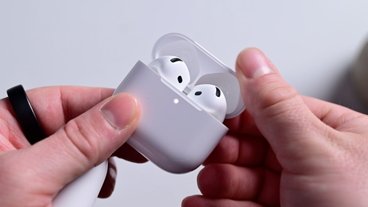





126 Comments
Had apple shipped a usb C cable with the iPhone, these same people will say that they now need an adapter to connected to usb A only computers.
Also, apple is not the only seller of adapters, ya know.
common sense will tell you as much,, but I have seen many people who simply never think.
EG, mac rumors.
Is there a reason Apple didn't ship a USB-C to USB-A cable in the box? We got a headphone jack adapter in the iPhone 7 box. What's the difference?
"
Why didn't they just throw on in each laptop box, not with each iPhone?